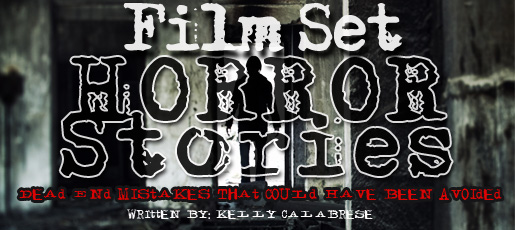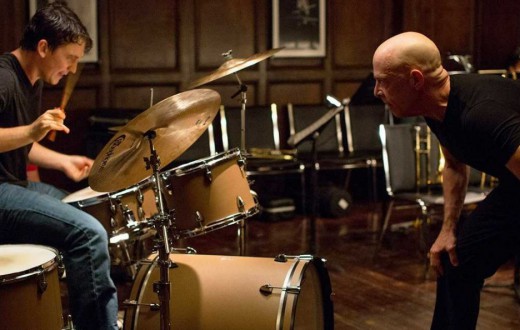So for those of you with some experience: do you remember your first time?
No, not that, you perverts.
I’m talking about the first time you walked into an audition room for a professional audition. High school and university auditions are one thing: you’re in a room with your friends, and you’re probably auditioning for professors you know; it’s very familiar.
Professional auditions are not nearly so warm and fuzzy, especially the first time. Remember the fear, the nervousness, the uncertainty? Where do I go, where do stand, should I say something, should I say nothing, oh god what if I forget EVERYTHING?!?
Well, for those of you just getting your feet wet in professional acting, there’s good news: it does get easier. It’s never easy, but it can be easier. Having a better understanding of what is expected of you can go a long way toward reducing your nerves and allowing you to focus on your acting, which is why you’re there in the first place, right? So here are few things to keep in mind.
1. The audition begins sooner than you think
There are those in the business who say that the audition begins the moment you walk in to the audition room, but I think this is too late. The truth is you are already under scrutiny the moment you enter the lobby or waiting room. The people who are taking your info and headshot are likely to be associated with the production in some capacity, maybe at a higher level than you think. If you behave rudely with them, that will not go unnoticed. From the moment you walk in the door you need to carry yourself with confidence, professionalism, and be ready to go to work. You are here for a job interview. This business already has plenty of ill-mannered, adult-sized children who behave like idiots, throw tantrums when they don’t get their way, or who shit on people they think are beneath them. You don’t want a reputation as one of them.
2. Presence counts for a lot more than you think too
The above also applies to when you are called into the audition room. Just as a job interview begins before the greeting, the people for whom you are auditioning have begun to size you up before you utter a word. Walk in with your head held high, confidently say hello and keep this mindset: the casting team is looking for your help. They want to be finished with the casting process as soon as possible. They would LOVE it if you could make yourself the obvious choice. Your job is to make their job easy for them. They are seeking professionals who are confident, easy to work with, and adaptable. A cringing actor who scuttles into the room like he’s about be beaten does not evoke a picture of someone who will be easy to work with, no matter how closely they might fit the profile of the character being cast. The job of the actor is to become part of a creative team, and contribute their own creativity to the project, not to be a cog in a machine. Showing your professionalism and your confidence in your abilities is a good way to communicate that you would be a valuable team member.
3. Take control
One of the best pieces of advice I ever got about auditioning was from a teacher who said, “It’s your job to put the casting team at ease, not the other way around.” While it’s true that good casting directors understand the stress of auditioning and will make an effort to relax the auditioner, you should actually be the one working toward relaxing THEM, from the moment you walk in. Take control of the room, be easy and confident as you greet the team behind the table, and prepare to do your job. How? As related to the above tip, confidence is key, but also this is about taking charge and showing that you are ready to work. After greeting time is over, don’t be afraid to take five seconds to prepare yourself to perform. Never rush into your audition piece, as the people behind the table also need a second to make the mental transition. An example: there will usually be a chair available for you. Put it where you want it. Don’t ask if you can use it, don’t ask if you can move it, just put it where you want it while you take a breath and prepare to transition into your character. This demonstrates that you have put some thought and work into your piece, and signals that you are an actor who is prepared and thoughtful.
4. Focus
Here is where the real work begins. You should have already done the prep work–you know things like where the scene is taking place, your relationship with the other characters in the scene, and what your character wants–but now is when you take a moment to recall these vital facts. Five seconds can seem like a lifetime but it really isn’t too long to take to get yourself in the mindset to perform. In addition to focusing on what your character wants before the scene begins, once you start the scene really focus on the reader you’re working with. Listening is vital to acting, as we all know, and the audition is no exception. This is your first (but hopefully not your last!) opportunity to demonstrate to these people that you are a professional who knows the importance of listening to your scene partner and going with what you are given. Nerves can make many an actor read in a rote way in which they have rehearsed the scene and simply steamroll over the reader. Responding to what you hear and showing that you have listened and absorbed what you have heard is key, as much as the way you respond to it. Your reactions can make or break your audition, especially if it’s an on-camera audition.
5. Have fun
This may sound trite, but wrapping up your audition in a fun or at least jovial way is just as important as your demeanor was when you walked in. Do take a moment to breathe once the scene is done, during which time you can usually tell if they will want you to make an adjustment. If they don’t ask for anything else, say a cordial thank you to both the team and your reader, and head out. Don’t bolt for the exit the moment you’re finished, and never, ever apologize. Unless you spilled coffee all over the casting director’s Macbook Air, you have nothing to apologize for. A professional knows he or she can’t always be perfect, but has the confidence to know he or she can always be better. If you did your prep work and delivered what was asked of you, you did your job. Time to hit the next audition!







